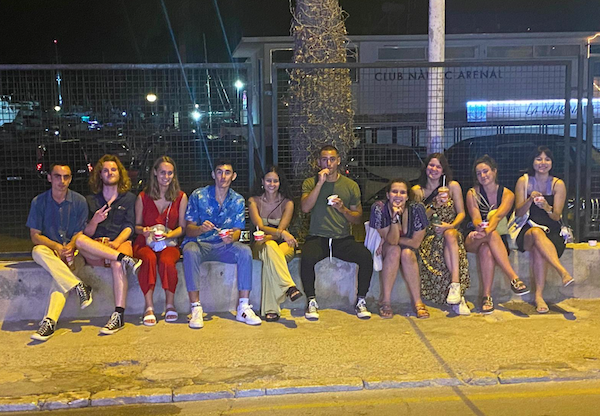It’s difficult to find time to study abroad as a STEM student, let alone as a pre-med student, with coursework that is infamously inflexible and difficult. However, I was determined to study abroad my final year in school, and thanks to my AP credits, I was mostly done with all of my required coursework and prerequisites.
Originally, I was supposed to study abroad in Tokyo. The coursework was relatively flexible there, and I was excited to learn more about my culture as a Japanese-American. However, in May, this study abroad program was cancelled due to COVID-19, so I scrambled to switch study abroad programs. There were still a couple of options open, but it was clear that the next best option was Madrid.
As a future healthcare worker, I knew that Spanish would be an important skill to be able to communicate with my patients. However, I was intimidated by the program because it was a Language and Cultural Immersion Program that my home institution offered, which meant that all my classes would be taught in Spanish, and I would live in a homestay. I hadn’t taken Spanish since my senior year of high school, so there was quite a lot of catching up for me to do. Additionally, as a pre-med student, I am always anxious about my GPA and my grades, so I was extremely nervous about my performance in these classes.
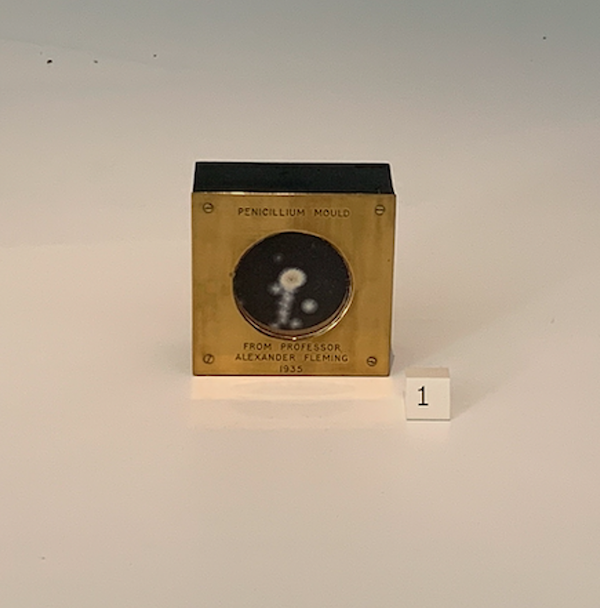 |
| Bio nerds rejoice – this is the penicillin that Alexander Fleming accidentally grew, which is at the Science Museum in London |
Another factor I had to consider was the time difference in Spain, because I applied to medical school that summer. I had to be prepared to do interviews in Spain, so I was nervous about having class conflicts and a quiet environment at my homestay. On the other hand, I also had to prepare myself for the inevitable rejections -- however, I figured being abroad would actually help me overcome these pains and serve as a much needed distraction from the stressful uncertainty of medical school admission.
So I decided to go all in on it. I took a summer class at a community college to brush up on my Spanish, and took a placement test for Nebrija University to be placed in the appropriate Spanish level. This helped me feel more prepared for the complete language immersion in Spain. It was difficult to complete the visa process when I was working full-time over the summer in a research lab, but it sorted itself out with a lot of patience and determination.
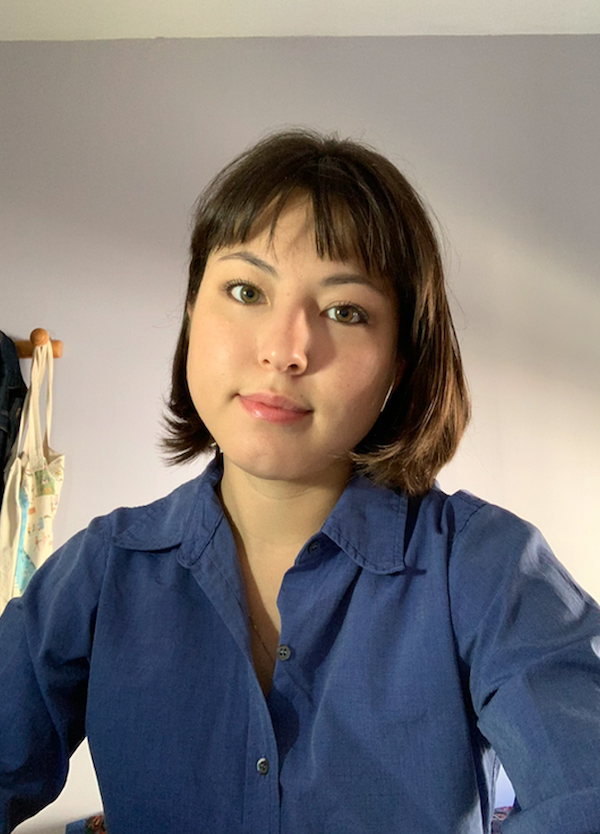 |
|
My interview outfit, in my homestay room |
I have been in Madrid for a little over two months now. In October, I did my first interview. The time difference ended up not being a problem because all of my classes end around noon, and with the 6-7 hour time difference with the U.S., this meant that interviews that took place in the morning in the U.S. would be in the afternoon in Central European Time. I also used my noise-cancelling headphones with a microphone to reduce any outside sounds for myself and my interviewers, since even with the best efforts to be quiet, the housing in Madrid tends to be smaller so some outside noises were inevitable. Being in Madrid was actually a great way to start my introduction to my interviewers because it was unique and interesting; I’m certain they will at least remember me thanks to this. Overall, the interview went well and I had a fun time learning more about this program.
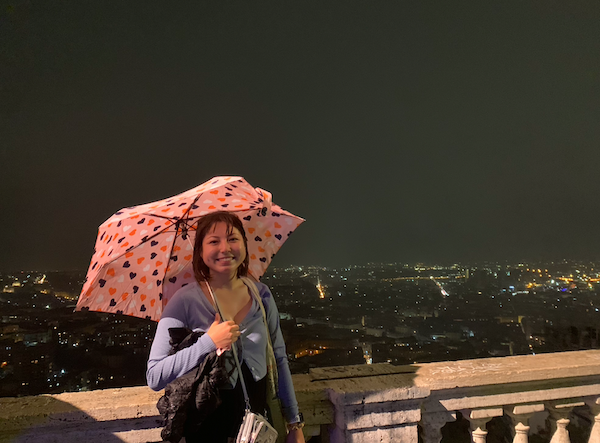 |
| Me in Naples, no longer thinking about my rejection because I just walked up a St. Elmo for 40 minutes in the rain |
However, as I mentioned earlier, with good news also comes bad news. So far, since I’ve been abroad, I have received three rejections. It was difficult to push down my feelings of disappointment and frustration, even when I told myself that I should not let this news ruin my day. One of the rejections came when I was in Rome, thankfully at night, and I went to bed feeling very hopeless and sad. In the morning, these feelings prevailed. However, that day I experienced many travel mishaps -- missing the bus and train, running around the train station, and riding a (probably illegal) taxi going from Rome to Naples to Pompeii, and with all this chaos, my mind completely forgot about my rejection. Being abroad has helped me overcome my disappointment, even if the experiences that helped me were not pleasant ones.
I am currently still waiting to hear back from the majority of the schools I applied to this cycle. However, my time abroad has helped me immensely to be patient. Here, in Madrid, I can focus 100% of my attention to learning Spanish, which actually hasn’t been as bad as I expected. You catch onto the Spanish that the professors use in class pretty quickly, and the workload is very little compared to your traditional STEM workload. Because the levels are adjusted for my level of Spanish, I am not afraid to ask questions or answer incorrectly, which is an important process in learning a language. The improvement is not immediately obvious, but through small experiences like at the grocery store or at the restaurant, you realize that you understand people so much more and can speak on the fly a lot easier. Although it feels strange to not be taking any biology or chemistry classes for an entire semester, I still feel as though I am learning a dire skill because of the importance of Spanish in the U.S. for healthcare workers.
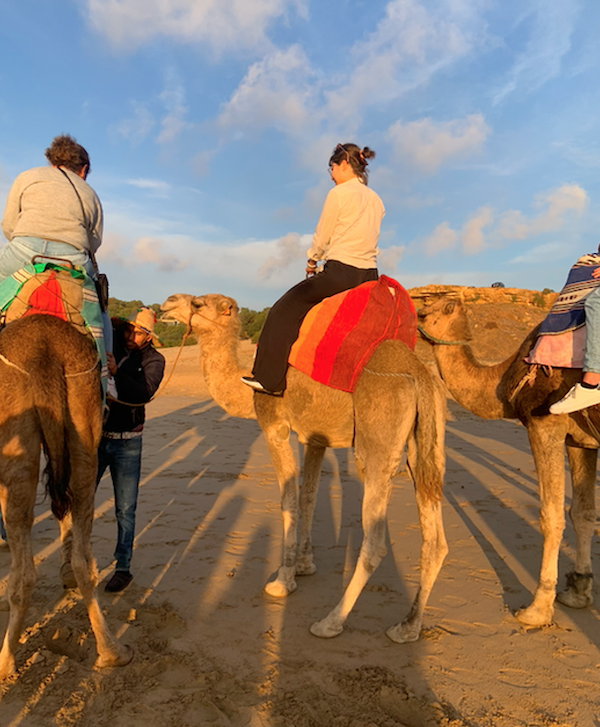 |
| Riding a camel in Morocco |
So, do I recommend pre-med students to study abroad? Absolutely. Although personally I believe that a Spanish program would most benefit pre-med students, any study abroad program would be a great way to take a break from the intense science coursework and appreciate the diversity of the world we live in. Since I arrived to study abroad in Spain, I have visited Italy, the U.K., Portugal, and Morocco, and it has been amazing to be able to see so many different cities and cultures for a cheaper price! It is a great way to gain cultural competence, which is important as a physician since patients come from so many different backgrounds, and to be able to adjust to this will immensely improve the care you provide. Additionally, it gives you a chance to learn more about the infrastructure and healthcare programs in other countries, which can help us see how our healthcare system in the U.S. can be improved. Everyone benefits from studying abroad, but I truly believe that pre-health students have so much to gain from such an experience.
Please feel free to send me any questions about my pre-med journey and my time studying abroad!
Instagram: clairesagartz15
E-mail: csagartz@depaul.edu
Claire Sagartz is a CEA Study Abroad Content Contributor spending the Fall 2021 semester in Madrid, Spain. She is currently a student at DePaul University.








